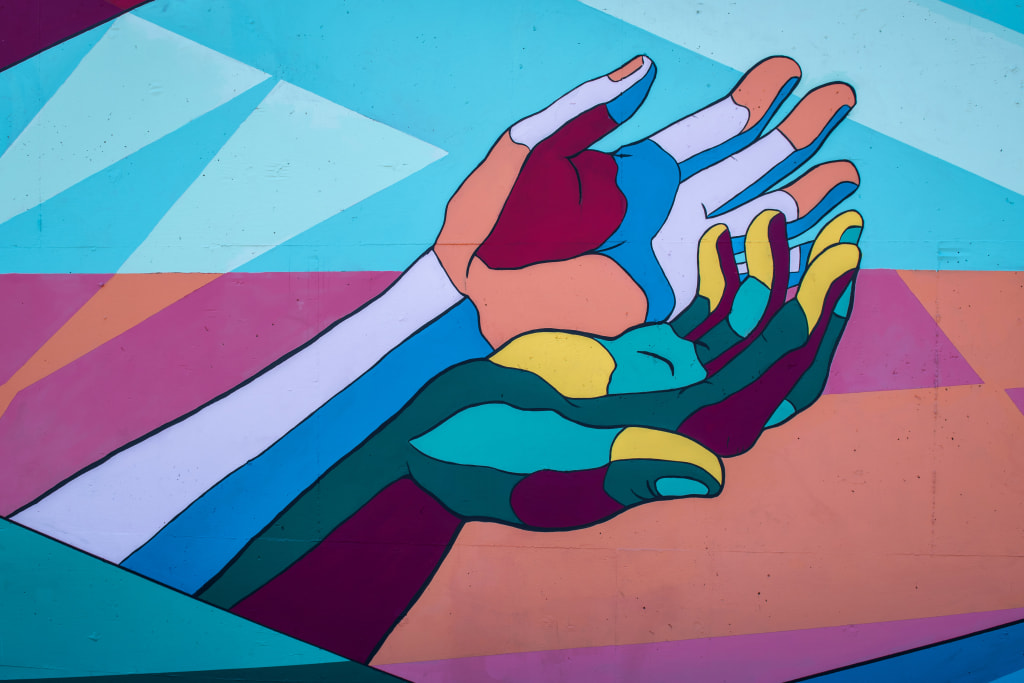Are We Forgetting How to Be Kind to One Another?
Yes, but we shouldn't worry too much about it.

After almost a year in isolation and with my country heading into its third lockdown, I have been starting to experience loneliness and a seeping feeling of inadequacy in the few social situations I have lately had to engage in. A recent experience, in particular, got me thinking about whether I have changed in more profound ways than I had previously imagined.
On a drizzling Saturday morning, I was one of six people in line at my local post office. While waiting as patiently as I could under my leaky umbrella, I noticed a lady holding a baby but no umbrella getting in line as well. I am not proud to admit that my first (and only!) reaction was to merely feel sorry for her having to endure standing like that in the long line.
After some time, the man right at the front of the line also noticed her. Fortunately for the lady and her baby, he asked the rest of us whether we would be okay if we let her go first. As we waved her through and while she was thanking us all for our generosity, all I could think of was: How come I hadn't thought of that in the first place? When had I become so complacent?
Many of us who have been subjected to confinement rules have felt lonely more than usual as of late. And it has been known for a while that lonely people are less likely to initiate or engage in prosocial behavior. This entails activities and actions that benefit other people. When we are unhappy with the extent of our social network or interactions, we tend to view the world as being more hostile, rendering us less open to helping just for the sake of doing something altruistic. In psychology, this theory is called the loneliness-perpetuation perspective.
On the other hand, a person may be motivated by the pain loneliness brings about and take the initiative to change their situation. From the loneliness-reduction perspective, humans may engage in prosocial behavior—especially in public situations—to avoid suffering and perhaps gain friendships or earn respect or prestige.
I can say that I have definitely started to view the world as a more hostile due place to my lack of social interaction over the past year. For example, I find myself more prone to interpreting people's faces in negative ways. Neutral facial expressions communicate discontent to me; I tend to assume that the people around me are in as bad of a mood as I am. This is why I was so surprised to hear the seemingly grumpy gentleman at the front of the line at the post office speak such kind words.
So the rest of us in line failed to take prosocial initiative. But once the idea was suggested, we unanimously agreed that it was the right thing to do. So does loneliness affect even a person's ability to empathize? A new study published in the journal Frontiers in Psychology by researchers at Sun-Yat sen University, China has examined this exact topic. The participants who self-reported feelings of loneliness showed a higher likelihood to empathize with people who experienced positive rather than negative emotions. The scientists hypothesized that the subjects avoided negative empathy because of the lack of perceived social support—for example, they did not get as emotionally involved when being shown angry or sad facial expressions.
Although solitude may affect our social skills and make us awkward, not all is lost. We may tend to make a mountain out of a molehill when it comes to social faux pas, even though our missteps may be fairly minor. Ty Tashiro, social scientist and author of Awkward: The Science of Why We're Socially Awkward and Why That's Awesome, said:
These tiny deviations from what’s socially expected in [awkward] situations can create a tremendous amount of embarrassment – and that just shows you how fine-tuned the human mind is to pick up on social expectations, and then assess whether we're meeting them.
So here's to hoping that, every day, we at least try our best to be the person who offers their seat to an elderly person on the bus, who holds the door for others, or who exchanges a few compassionate words with the homeless. Let us all lead by example, one kind gesture at a time.
About the Creator
Lola Sense
Poet and writer of steamy stories. If my work tickles you the right way and you want to support me, feel free to buy me a coffee to keep the sexy stories coming!






Comments
There are no comments for this story
Be the first to respond and start the conversation.